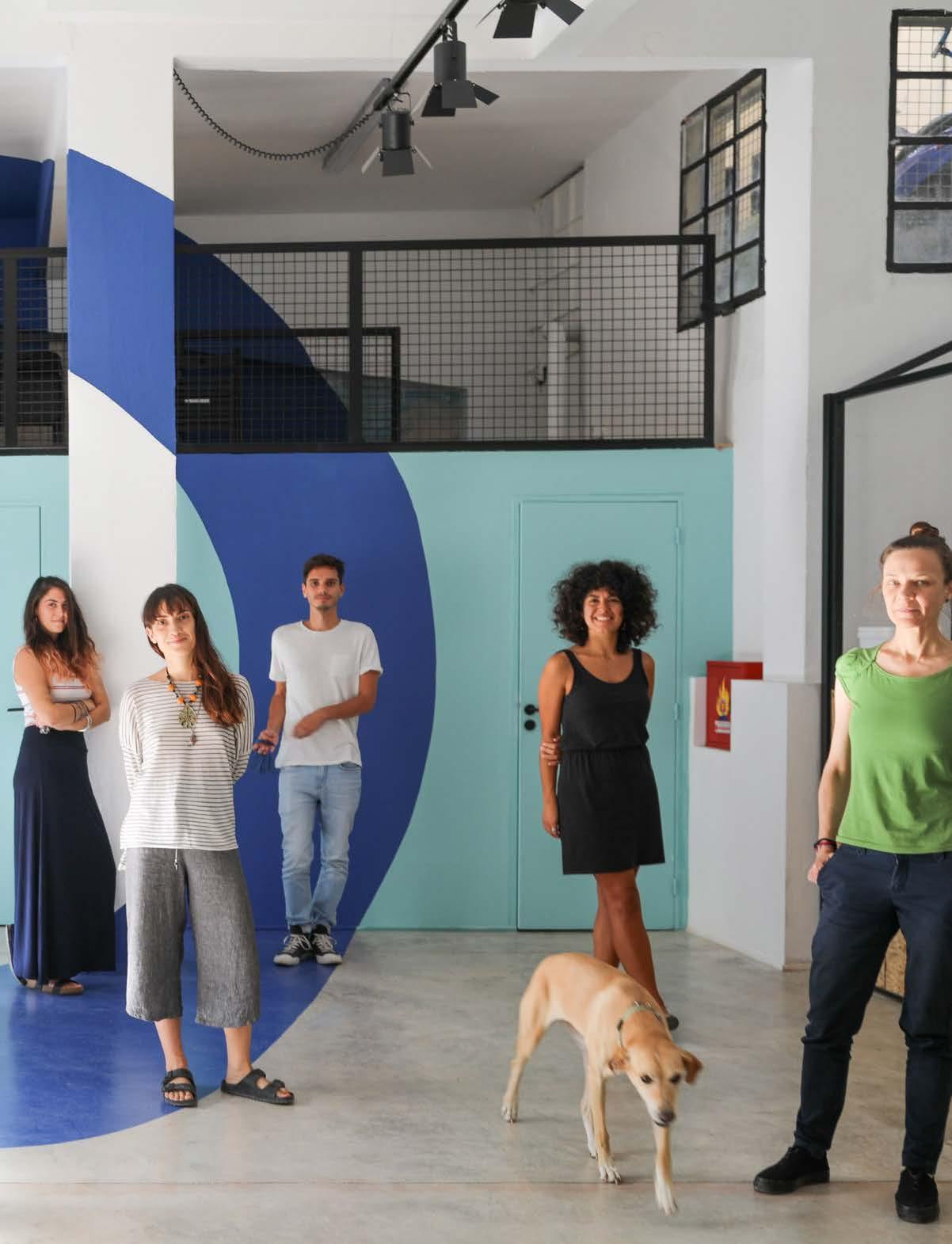
18 minute read
The Projects
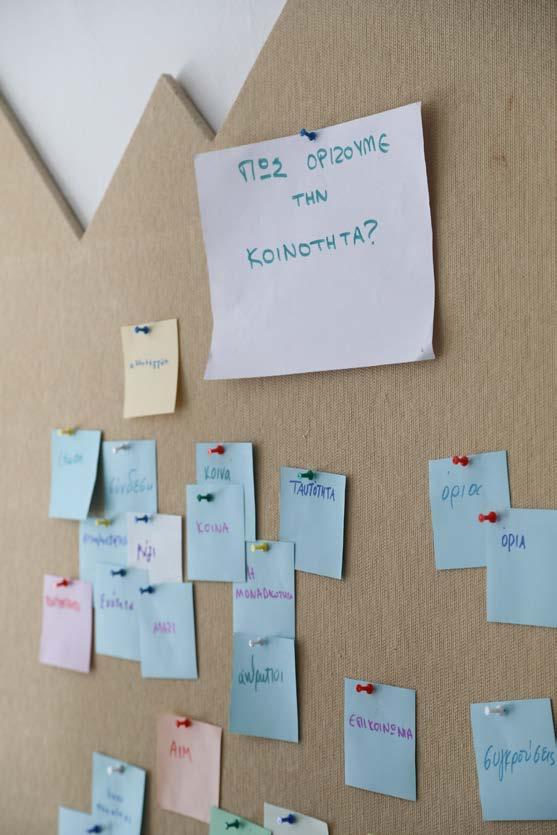
InCommOn in 2020: Dynamic, Flexible, Dedicated
Advertisement
InCommOn is dedicated to its principles of inclusivity, participatory design and supporting both people and the planet. Our dynamic, flexible manner of strategic planning and individual activity organisation ensures that we deliver our projects, meet our goals and are unwavering in our commitment to our community, staff and environmental principles, regardless of the circumstances. While the practical means through which we serve our goals have been impacted by changes in the operating environment this year, we quickly adapted and will continue to learn and develop quickly and thus overcome future hurdles to ensure that we never diverge from our aims. In a year dominated by the essential restrictions and dilemmas posed by Covid-19, the work of InCommOn was necessarily far different in practice from the plans made in 2019. Nonetheless, our work never wavered in its principles, never diverged from its commitment to community-building and participation, and never flagged in its ability to meet the goals we had set prior to the pandemic. Despite the curtailment of community activities in a physical space, the InCommOn team not only adapted, but also evolved in order to meet the emerging needs of the public; to reach our audiences and target groups effectively, and to engage in the same interactive, participative actions we had planned, but just through a different medium.
The Projects: Inclusive, participative, innovative
Each project of InCommOn operates as an autonomous initiative with an internal structure and processes of management. However, InCommOn as a team of diverse professionals under one organisational ‘umbrella’, works across projects to share skills, train staff, cooperate on fundraising and idea-sharing, support each other and grow together. Each project involves cross-cutting inter-disciplinary issues that intersect with the others and through cooperation across programmes, the projects and the organisation flourish. Every project, regardless of its specific goal, gives equal emphasis to the environmental, human and economic aspects at all stages of its planning, implementation and impact.
Projects:
No-one left out; no-one left behind.
Imagine a community in which no-one felt marginalised; a community which recognised and appreciated both the skills and the needs of all its residents; a community that worked with, rather than against, nature and cooperated towards an inclusive, sustainable future. “Imaginary” does not have to mean “fantasy”. Rather, through Kyklos, it is a blue-print for a potential reality. It is the space to initiate ideas and the practices of a local circular-economy (reusing, repurposing, sharing, lending and re-integrating materials into a new economic “item/product”, as opposed to “linear” economies of consumption and waste). It is a way to empower individuals and groups to be the actors of their own destinies to create the equitable, environmentally sustainable future they want to see: for their community, their neighbourhood, their city and beyond. Kyklos intends to be a starting point for this movement for holistic social, economic and environmental change that starts with each of us changing our attitudes and habits. Kyklos is a means for us all to move away from isolation and transactional communication among people in communities to true interaction: encouragement, sharing of knowledge, educating ourselves and each other and working collectively to create ways to utilise common public space and improve the environment. In this way, together, we can raise our collective consciousness, motivate each other, work towards circularity and achieve collective goals beyond those set by structured education systems, unworkable policies and outdated social constraints.
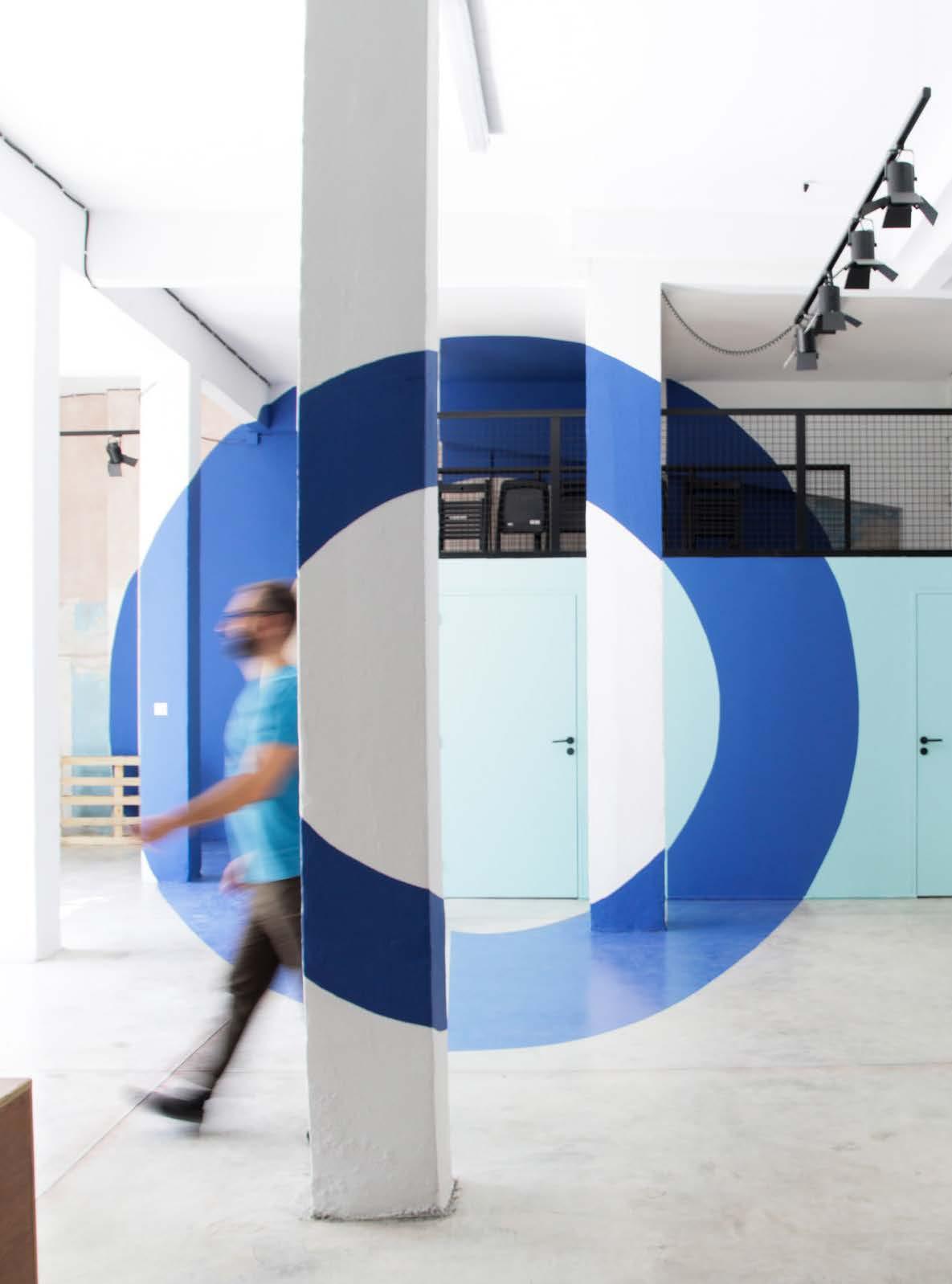
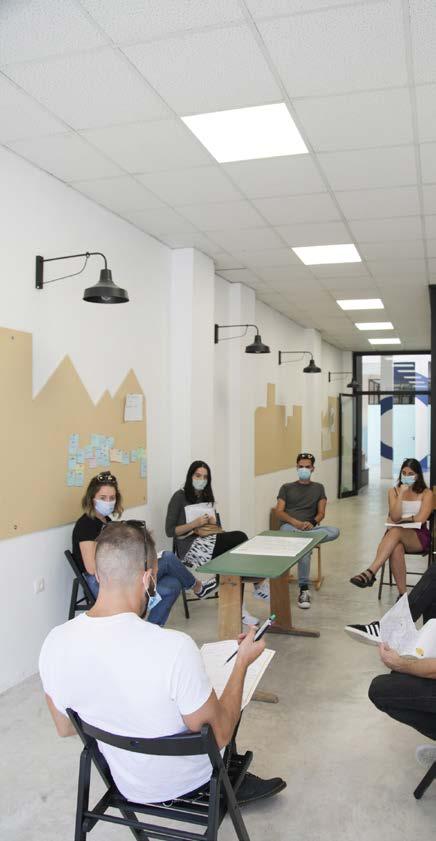
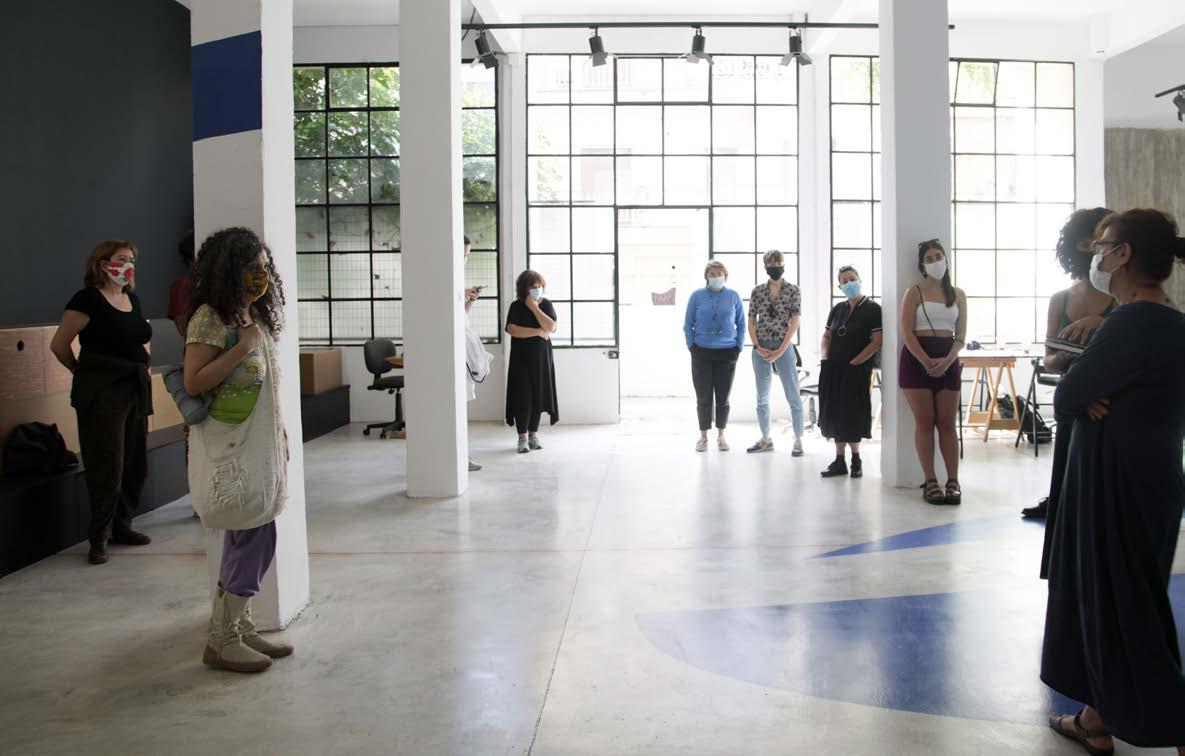
Meaning “Circle” in Greek to emphasise inclusivity, Kyklos is a community project and the site of InCommOn’s Urban Sustainability & Circularity Lab. Moreover, it is a space for community use and public activities, and a place for a vision of collective sustainable development to be realised. It is a participatory project-the values of which are embodied in its manner of working and have been from the start. The renovation of the premises was undertaken with community consultation and participation and with the highest standards of environmentally-friendly techniques and materials. Kyklos aims to engage communities, support them in generating new initiatives, and provides the space and tools to work together towards urban development through the vehicle of circular economy. It is also a multi-purpose space for a wide range of social, cultural, creative, ecological and educational initiatives to be generated. As an established presence and inclusive space in the neighbourhood of Ano Poli in Thessaloniki, it is a focal point for the community to engage in co-education and the co-creation of urban solutions, for ecological development and to be a reference point for the neighbourhood to meet and collaborate.

The Activities of Kyklos in 2020:
Fostering creativity, innovation, ideas, co-learning and building social capital: each activity of Kyklos contributes to our vision of a ‘circle’. We aim to build a ‘circular community’- a place in which no-one is left out, everyone is valued, and we live in ways that utilise and give back to the natural world. Each action has a specific purpose in itself, but more than this, each activity of Kyklos is carefully designed to be an essential part of our ‘ecosystem’ of interrelated and interdependent parts. Each activity’s realisation allows the community not only to participate in that one action, but also to contribute to our collective understanding of society and the environment, to feedback into our work as an ongoing cycle. Through fun, creative public activities, feelings of ‘belonging’ are developed, which assist our long-term community building work, which in turn, informs our public activities. Kyklos’ activities are arranged into two broad branches, each of which interacts with, and informs the practice of the other. The first is long term community building- through social research, ‘placemaking’, stakeholders’ engagement and strategic partnerships development, the other is a wide range of public activities.
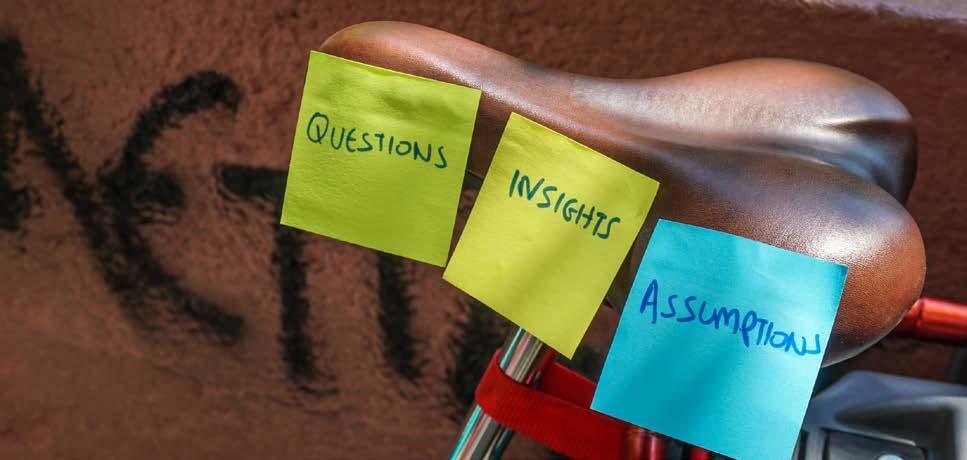
Community Building
Community building, placemaking, stakeholders’ engagement and social consultation processes started before the premises of Kyklos were opened to the public or even renovated.
We utilised (and continue to do so) the multi-disciplinary approach of “placemaking” which aims to build communities around the shared physical space in which they are located. For this purpose Kyklos has developed a long-term collaboration with STIPO, a Netherlands-based multidisciplinary urban development team, driven by sustainable quality and human scale. Placemaking is a participatory, “hands-on” way of collectively imagining and creating a supportive and functioning community that collectively utilises and looks after the common physical spaces of the neighbourhood along with the “intangible” assets of the local social capital to maximise shared value and support each other in a manner that is specific to the social and cultural identities that define the people and the area. The renovation itself is an ongoing participative process with the residents of the area as a starting place for community-building and cooperative working. A long-term strategy for community building was created and the first phase was completed in the Spring. This is an ongoing process and will develop and be adapted as Kyklos grows. It is with great pleasure that Kyklos was able to collaborate on this work with a local NGO with a long presence in the city since 1993 and rich work on issues ranging from combating racism and discrimination to social ecology and tackling climate change - “ANTIGONE – Centre on Information and Documentation on Racism, Ecology, Peace and Non-Violence”- who kindly shared their expertise and experience to support the development of the strategy. The strategy is based around neighbourhood and city stakeholders’ mapping, and a multi-aspect social research project which includes street research, research into land use, demographics, and analysis of existing policies, in tandem with participative action research (street research, narrative interviews with residents and experts and a city-wide survey), adopting methods and tools from placemaking, asset-based community development and design thinking. These activities are consistent, ongoing and involve interviews with residents as well as developing networks of stakeholders and talking with local experts as well as the municipal offices and services in the neighbourhood. The opinions, ideas, skills, thoughts and feelings gathered through these actions help inform the public activities, while, at the same time, the public activities are in themselves, community building tools, which inform back the strategy itself.
Public activities
Kyklos’ public activities all include cross-cutting themes of co-learning, environmental behavioural change and community solidarity. Within this framework, 4 broad areas of action are set out, and activities (either one off events, a series of workshops, or a repetition of an event with a new group of participants) are created and implemented. 1. Workshops 2. Knowledge-production and knowledge-sharing meetings 3. Informing and Awareness-raising activities 4. Neighbourhood activities
A sample of these public activities includes: › ”Bringing the Neighbourhood Map to Life” – a series of ongoing exercises to map the shared neighbourhood resources, as a first step in discovering local assets and informing the next steps of how to utilise them effectively for collective actions. › Children’s workshops that promote and embody the principles of upcycling, including; creating musical instruments out of ‘trash’; making bird-feeders out of old juice cartons; creating decorations out of recycled paper; making jewellery out of old bottle tops, and other items out of repurposed materials › Workshops on creative reuse and repurposing household items, which involve discussions about upcycling and reducing waste. › A series of online discussions, facilitated by a team of experts specialised in organic waste-reduction, about mindful eating and nutrition as well as how to reduce household waste and lower the carbon footprint of household consumption. › A participatory mapping activity of the places of importance and interest for the residents of the neighbourhood - meeting people in the local food market, local businesses, and the squares. › Online environmental games for children: this was done in form of a ‘quiz show’ with the aim of discussing environmental issues and personal responsibility in a fun and interactive manner › Creating an ever growing ‘Wall of Ideas’ - (a series of pin-boards) on which residents write ideas and thoughts about the needs and potential of the neighbourhood. › Creating a collective ‘Neighbourhood Tapestry’ out of recycled fabric from tailors in the area. › A neighbourhood seed collection, in order to start a ‘seed-bank’ and to exchange seeds and encourage urban gardening.
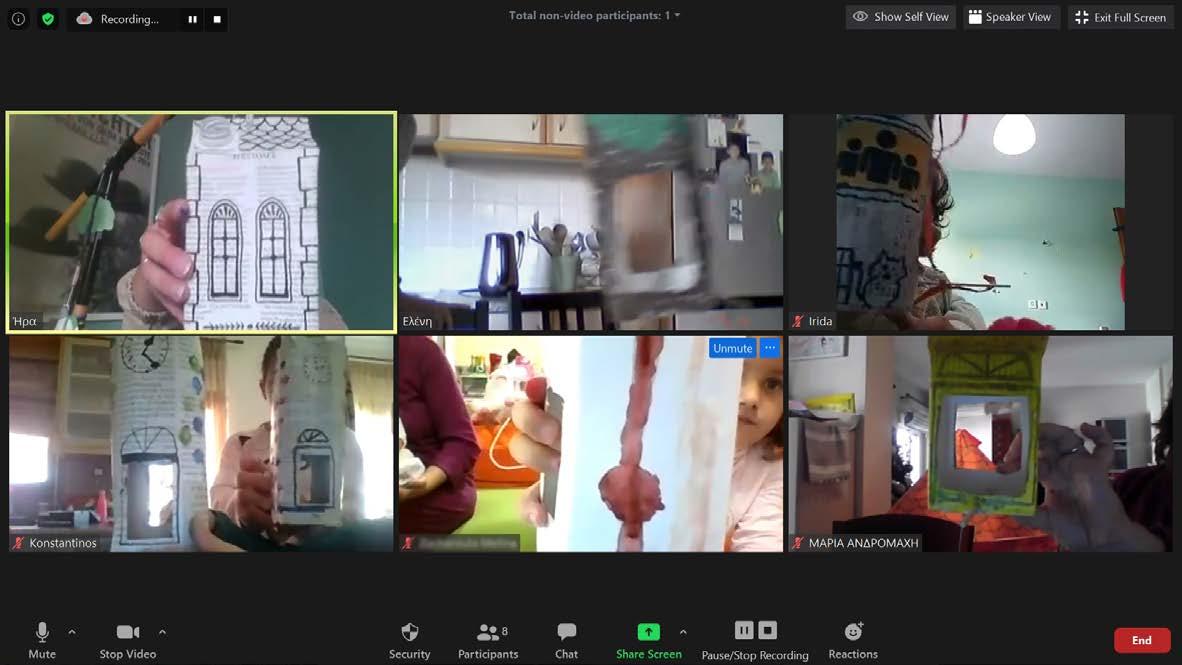

Some of the activities took place in the physical space of Kyklos during the periods in which businesses were allowed to operate (with all Covid-19 measures strictly enforced) while the majority took place online (during the periods of lockdown). In addition to creating activities, Kyklos staff have contributed to the work of wider networks and participated in a range of seminars, events, panels and discussions in both national and pan-European forums.
455 people have been part of our action research and community building processes
Over 192 hours of participative public activities and “Street Work” have been implemented
85 people have participated regularly in our ongoing social research, as interviewees and focus-group members
Over 622 people have participated or attended Kyklos’ activities
More than 8 external experts have been involved in Kyklos’ activities
We are currently working with 3 municipalities to create projects with them
7 number of local key stakeholders have been engaged
455 192 85 622 8 3 7
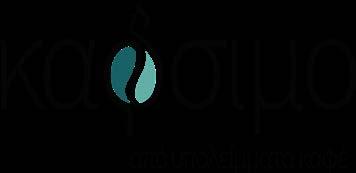
Kafsimo: from coffee waste to cleaner fuel! (2019 Ongoing)
Changing habits, attitudes and the environment…starting with coffee!
Our most common daily habit…drinking coffee. The hot aromatic liquid that offers moments of calm and also provides energy is Kafsimo’s point of entry to encourage us all to change our habits, attitudes and the environment! Greece produces 496 kg of solid waste per person per year and 81% of this ends up in landfill, even though more than 40% of it is organic. With over 100,000,000 kg of coffee waste per year alone, Kafsimo aims to encourage an overall change in the daily consumption, waste disposal habits and attitudes of the population so that we can all contribute to creating a cleaner environment today and for the future…starting with coffee. As a community-based project, Kafsimo gives equal emphasis and consideration to the social and economic aspects of ecological consciousness and behaviour change and uses coffee (an instantly relatable and familiar product) as the initial means of bringing about large-scale and sustainable change which will, in the long term, contribute to solving wider environmental issues such as air pollution, landfill waste and climate change.

How it works:
This pioneering project collects used coffee grounds from cafés, coffee-shops and restaurants in Northern Greece in order to convert them into clean biofuel, while engaging in training about organic waste reuse and supporting the integration of vulnerable individuals into the labour market through employment and training in the green economy. It is the first low-emissions logistics transport-collection system in Greece, and as it works in practice, the team simultaneously collects and records data to develop and refine the process. The project’s name is a wordplay in Greek – combining the words for “coffee” and “fuel”. Its immediate aims are to: › reduce landfill and methane emissions by gathering used coffee grounds and transforming this economic ‘output’ (coffee waste) into a green economic
“input” as biofuel › reduce air pollution and the use of fossil fuels (by reducing the number of sanitation vehicles on the roads, and by collecting the coffee grounds in a low-emissions electric vehicle), which is achieved by the creation of a smart algorithm to minimise the routes, collection frequency and human resources, and › address social issues of inclusivity, employment and public consumption habits
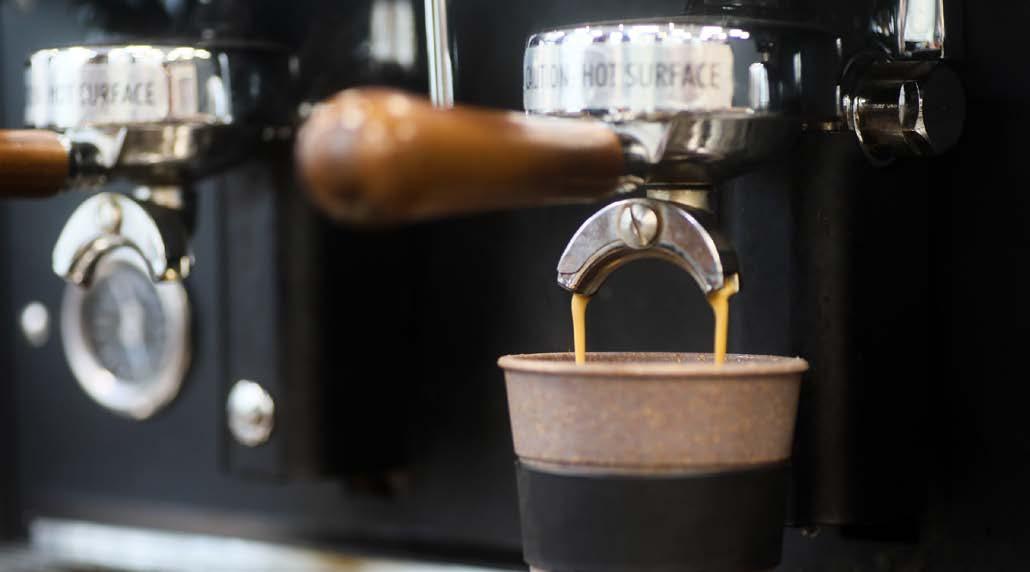
The long-term aims of the project are to firstly; standardise the collection and transformation (repurposing of the coffee into biofuel) model to be easily adapted to other geographical areas and organic waste streams, secondly; to reduce organic waste overall by educating the public, supporting them to create new habits and engaging with them to change their consumption and waste disposal habits; and finally to revolutionise the way in which waste is produced and discarded by working with coffee-shop owners, industries and at a policy level to move towards a circular model of reusing “waste” as an economic “input” rather than an ‘end product’ to be discarded. It is part of a wider multi-circular and exchange economy system that involves exchanging used coffee grounds from local cafés with “staramakia” (natural wheat straws) to replace plastic straws. The straws are made from the by-products of wheat production by a partner organisation. Thus, two “waste” products become new useable and environmentally friendly economic inputs.
The Activities and Achievements of Kafsimo in 2020:
This ground-breaking project started in Kilkis (a small city in Northern Greece), and was integrated into the wider work of InCommOn by initiating its Thessaloniki-based work around the premises of Kyklos-thus contributing to the community-building strategy. Working with local coffee-shops, the project blossomed into a strong network in two cities (Thessaloniki and Kilkis) within a matter of months. The network of participating coffee-shops has not only grown, but the shops have benefitted with higher levels of visibility due to their prominent “Kafsimo” stickers and collection boxes which demonstrate their commitment to environmentally responsible practices. Although the pandemic has brought new challenges for the hospitality sector (and, therefore coffee-shops and restaurants), Kafsimo, has, nonetheless adapted and continued its work. More than half of the cafés in Kilkis and a quarter in Thessaloniki had to suspend operations during lockdowns in the Spring of 2020 and again in Autumn. This has led to a reduction in the amount of coffee grounds that the van collects, but the project has nonetheless continued and is using the time saved from collections to refine procedures. We continue to work closely with our coffee-shop partners and assist them in overcoming whatever difficulties they may have.
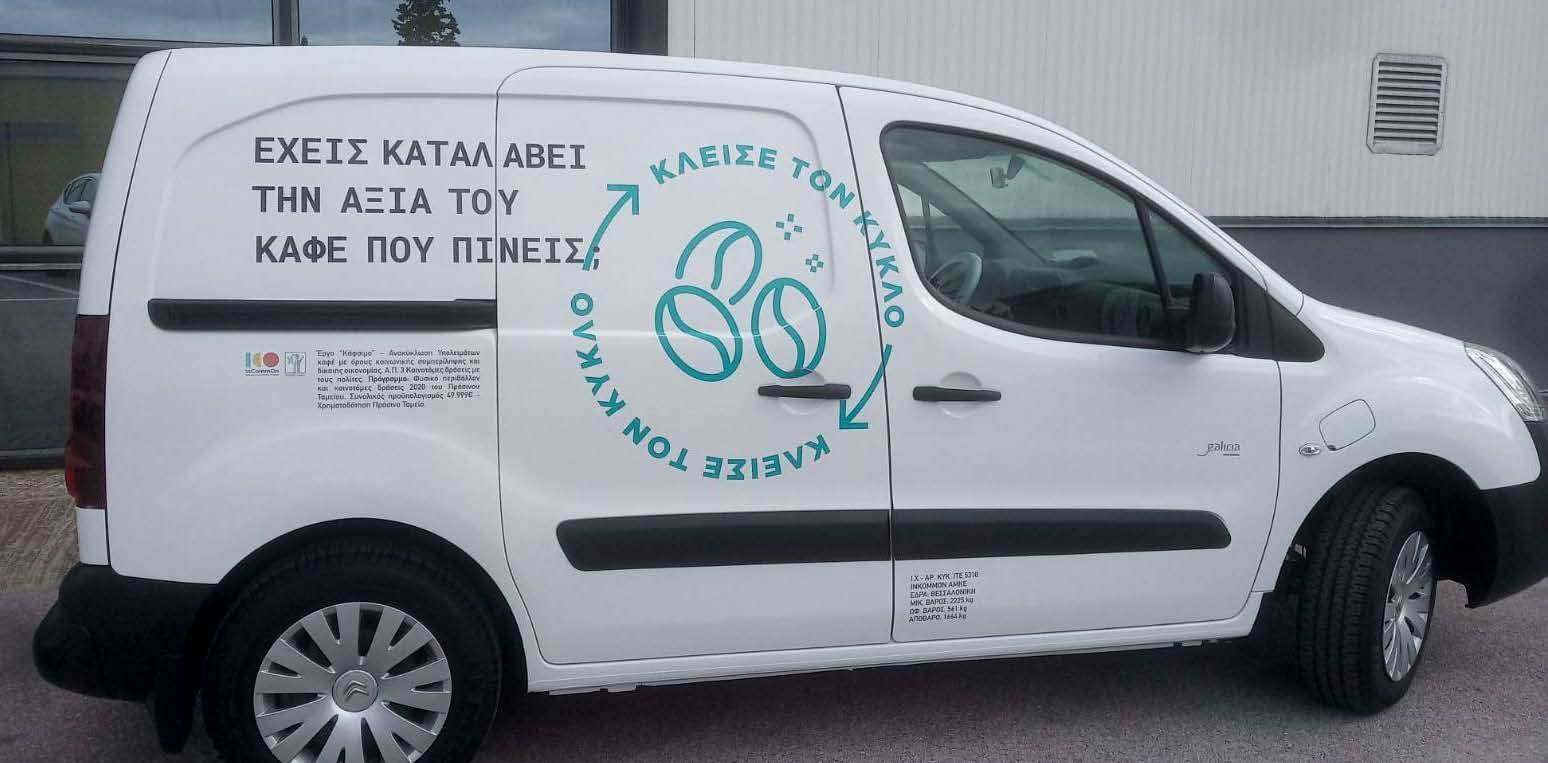
Our collection systems are all strictly compliant with the health rules and movement restriction laws. › An electric van was acquired, and an optimum lowest emissions route is now used in order to collect the coffee grounds. › Through experimentation and testing, a smart algorithm has been developed which allows the electric van to collect the coffee grounds and transport them to the storage facility utilising the optimum routes and timing to reduce environmental impact and make best use of staff time. Kafsimo is a pioneer in the field and this algorithm is a prototype that can be adapted and replicated in other cities. › The coffee collection system now involves 70 participating coffee-shops as a network of stakeholders, with Kafsimo team members training coffee-shop staff and working together as partners. › The Kafsimo team has been contacted by coffee-shops from all over Greece with requests for information, cooperation or to reproduce the model in other cities. › After our pilot projects, regular coffee waste collection started in November 2020 in Kilkis and Thessaloniki. › A specialised ‘greenhouse’ was built by the
Kafsimo team for the non-mechanical dehydration process of the coffee grounds, in order for it to be ready-to-use as biomass.
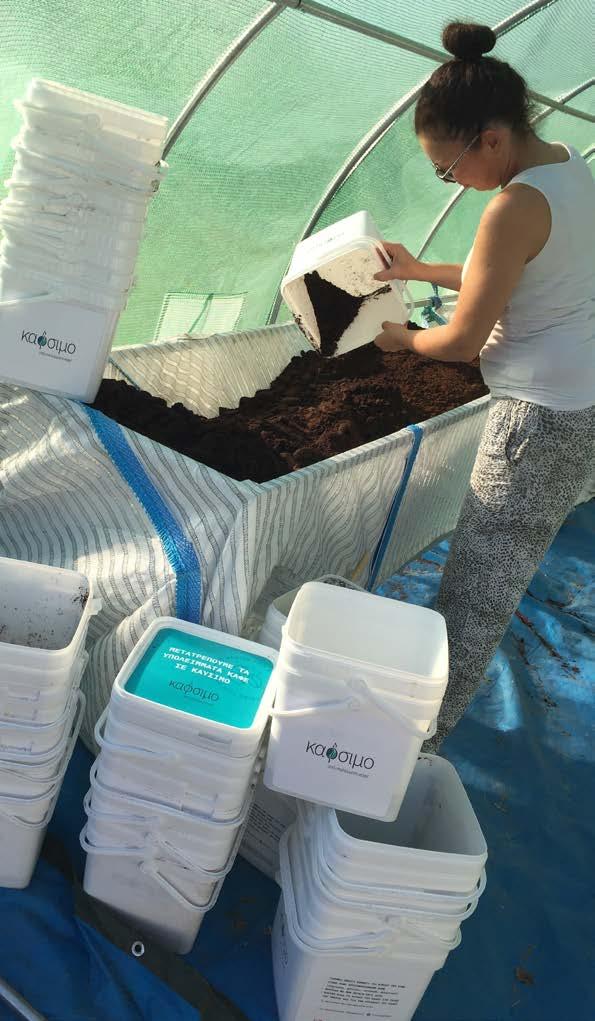
› Kafsimo received a prize from the “Venture Impact Award” – a national competition- the ceremony of which, was viewed by approximately 3,000 people. › Kafsimo has been featured more than 19 times in the national and local media. › Members of the Kafsimo team worked with students of Harokopeio University to present and discuss organic waste management and more specifically Kafsimo as an exemplary case. › We are in contact with the municipal authorities of both Thessaloniki and Kilkis who are enthusiastic about looking at ways to cooperate with Kafsimo, and we have initiated dialogues with municipal authorities across Greece to find ways to replicate the Kafsimo model in other cities. › Staff have participated in a wide range of local and international events as speakers, facilitators and experts.
The impact:
110 kg of coffee waste is collected on average per collection day. Therefore, approximately 2 tonnes in total have been saved from landfill and due to this, 60% less CO2 emissions have been released, than had the coffee been dumped in landfill.
Kafsimo has been raising awareness about a wide range of ecological issues through every part of its operations: working with suppliers, consumers, policymakers (with regard to both waste management and in advocating for the use of electric vehicles), coffee-shop staff and the public to encourage participatory environmental awareness raising, through enjoying a cup of coffee.
Three people from vulnerable groups have successfully completed training on issues of circular economy and waste management. This not only supports the three individuals in increasing their potential for employment in the formal economy, but also, their families and through their new knowledge, their own communities’ capacity to engage in environmentally sustainable behaviour change.
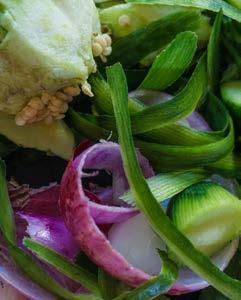

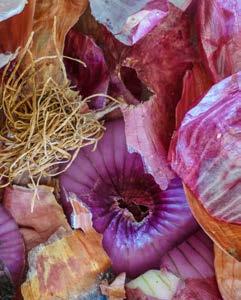
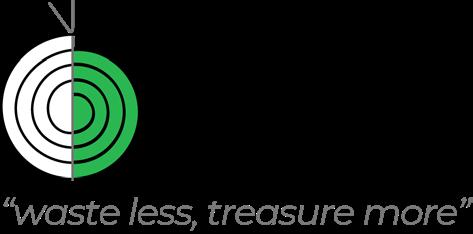
FoodTreasure: Waste Less, Treasure More
800 million people suffer from malnutrition globally. Meanwhile, 100 million tonnes of food is thrown away by the EU each year and in the US, 40% of the food produced is never eaten. Too many people going hungry…too much food going to waste. A global contradiction that our current systems of industry, advertising, trade and waste management perpetuate, and which we, the consumer is part of.
But how can we change this? Can each of us make a difference?
FoodTreasure is an environmental action initiative that takes a practical approach to reducing food waste, repurposing organic waste and working with industry, municipalities, and the public to reshape behaviour around the reuse of ‘waste’. Using interactive education and participative public engagement methods (rather than simply giving lectures or producing articles in scientific journals), FoodTreasure works with the public to demonstrate the problems of food waste, inform people about how their actions can help to bring about change and encourage people to adopt food-waste reduction habits. The project’s public work is supported and underpinned by its scientific research, advocacy with local and regional managing authorities, consultation with industry and the development of pedagogical and infrastructural tools to reduce food waste and better manage urban waste ‘streams’ (waste production). A central aspect of the project comprises practical research on the possibilities of easily replicable composting techniques (for small gardens, balconies, municipalities etc) in urban and peri-urban Mediterranean settings. Through our work on the utilisation of food waste, InCommOn has become a member of the ‘Alliance for the Reduction of Food Waste,’ an initiative of the organisation ‘Boroume’ (meaning ‘We Can’ in Greek) and the national supermarket chain AB Vassilopoulos. It is an alliance of various stakeholders from relevant sectors advocating for the reduction of food waste.




